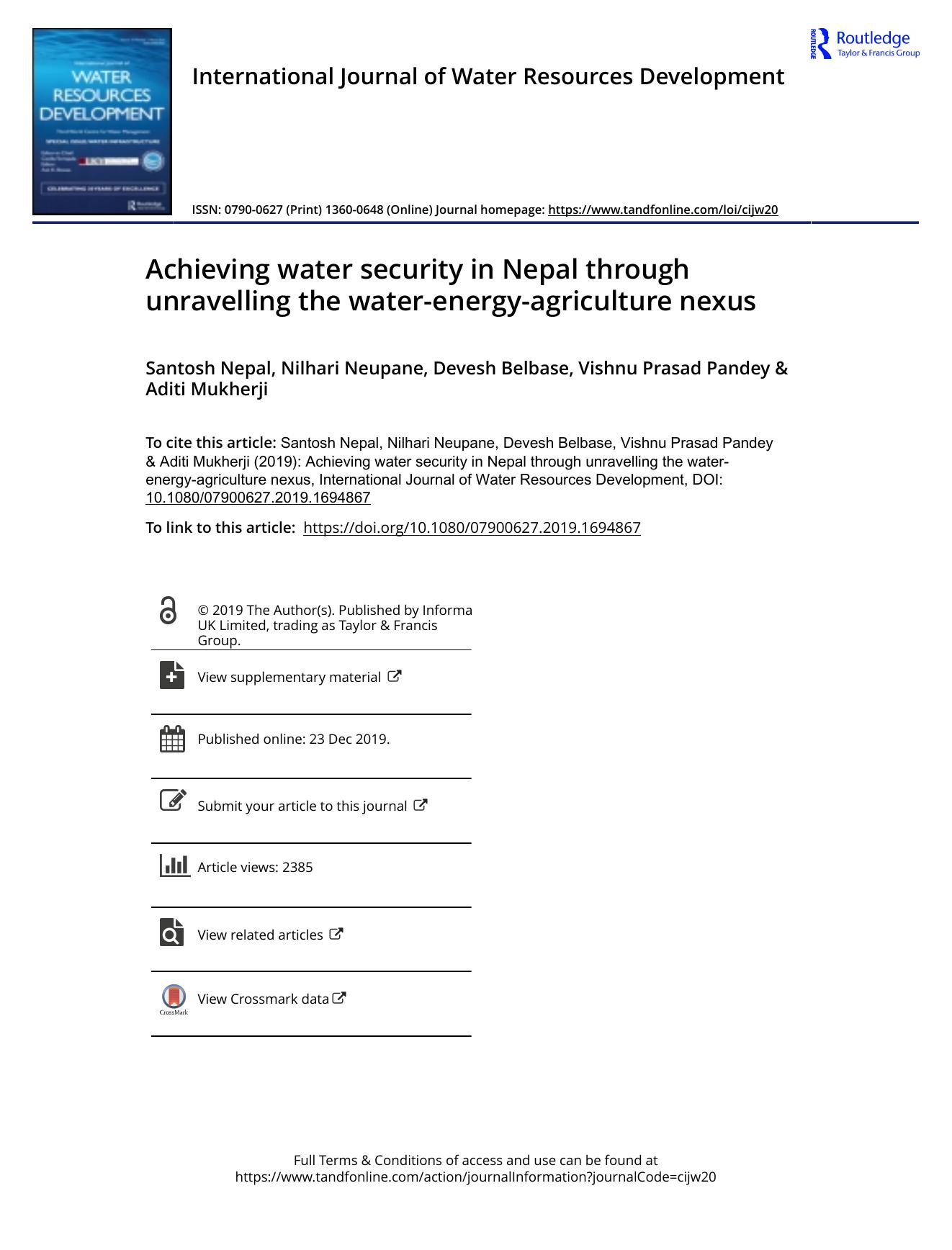
This article investigates water security in Nepal from the perspective of the water-energy-agriculture (food) nexus, focusing on pathways to water security that originate in actions and policies related to other sectors. It identifies promoting development of Nepal’s hydropower potential to provide energy for pumping as way to improve water security in agriculture. Renewable groundwater reserves of 1.4 billion cubic meters (BCM), from an estimated available balance of 6.9 BCM, could be pumped to irrigate 613,000 ha of rainfed agricultural land in the Terai plains, with a potential direct economic gain of USD 1.1 billion annually and associated benefits including promotion of energy-based industry, food security and local employment. Governance also plays an important role in addressing water security. We conclude that a nexus-based approach is required for effective water management and governance.